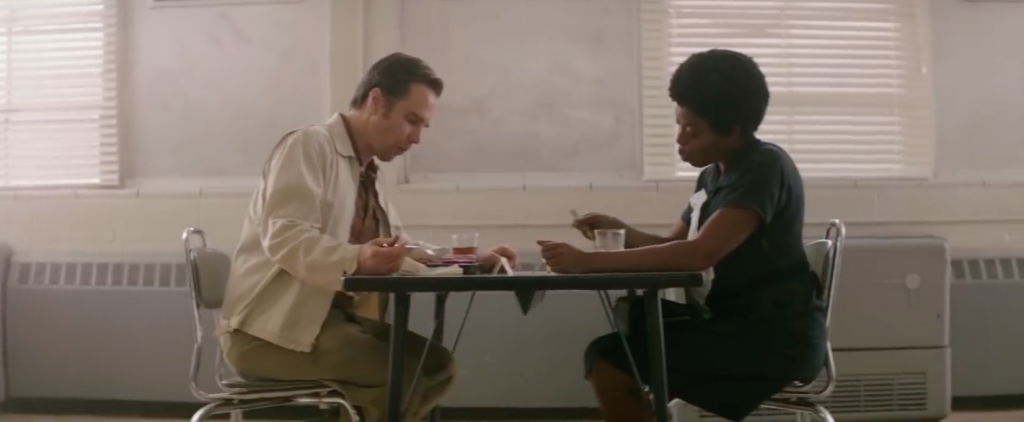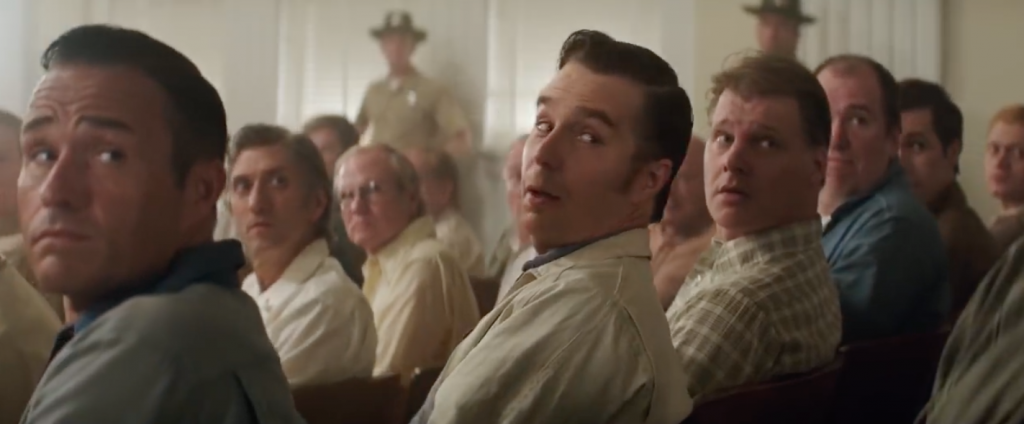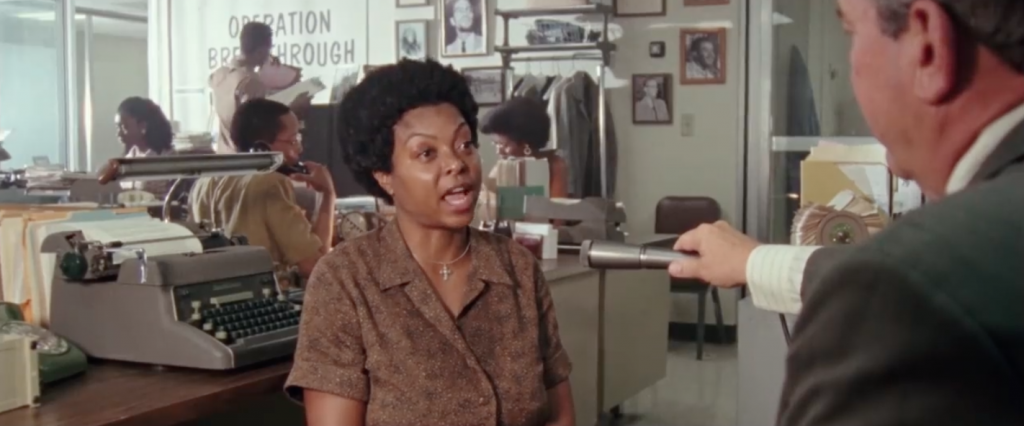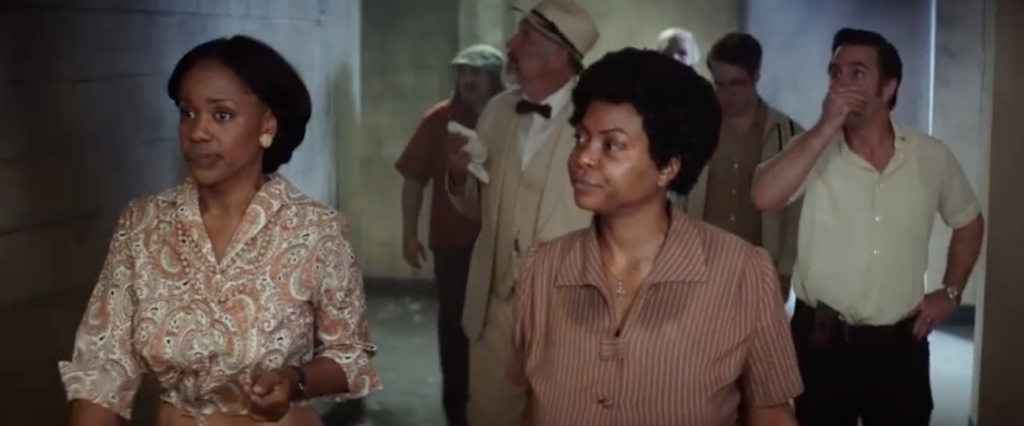“The Best of Enemies is worth the watch.”
The Best of Enemies is yet another film hitting theaters that tackles race relations and bills itself as a feel good comedy of sorts. Last year we got Blackkklansman and Green Book, two very different takes, and yet both wrapped up the systemic racism with pretty bows and left viewers feeling pretty good about the outcomes. The Best of Enemies is no different, as it’s based on a true story and attempts to show how even the most racist among us can change their ways. It’s an enjoyable movie; the performances are strong, and the story is a good one, but if you had a beef with Green Book for the way it portrayed race, you will probably take issue with The Best of Enemies, too.
Set in Durham, North Carolina in 1971, The Best of Enemies tells the story of how Ann Atwater (Taraji P. Henson) and C.P. Ellis (Sam Rockwell) go from despising one another to embracing their differences and forging a friendship. While this really did happen, and they show precious clips of these people at the end of the film, the story told in the film is a very loose adaptation, and most of what was portrayed was not what went down in real life.
C.P. Ellis is the president of the Klan in Durham. He runs a gas station and struggles to support his wife and four kids, one of whom has severe down syndrome and lives in a psychiatric hospital. C.P. is portrayed as a charismatic man, one that the Klansmen look up to, and one that shows no signs of changing his ways anytime soon. Not only does he talk the talk, he walks the walk. The only violent scene in the movie comes when C.P. and his fellow Klansmen lay in wait to shoot up the home of a white woman who is dating a black man. It’s a tense scene and would be scary for younger viewers as all of the adults were on edge in my screening. Rockwell plays Ellis beautifully. He adds dimension to the role and, at least for me, made it hard for me to completely hate him. Yes, his racism was disgusting, but you saw the humanity in the way he cared for his family and how he wrestled with trying to do what was right. Ultimately, he recognizes the hypocrisy of it all and has a change of heart, but it’s a tough road. You can see how systemic it is and the challenges one would face to leave behind the only group where they had ever truly felt accepted.
Ann Atwater is an organizer and comes to the aid of pretty much anyone in a bind, including at one point, the Ellis family. She is abrasive, she is out-spoken, and she gets things done. It’s fun to watch Taraji P. Henson in this role. She explodes on screen and the faces she makes are incredible. She is working to represent the black community in Durham to try and get better housing conditions and for most of the movie, to integrate the schools after the black elementary is burned by an electrical fire. After a judge won’t rule on the issue, an activist (Babou Ceesay) is called in to host a charrette- a two week community meeting that proffers ideas that are then voted on by a council. Atwater and Ellis are chosen to co-chair the event. Atwater, while at first strongly opposed to the idea of sharing anything with Ellis, begins to get through to Ellis on a personal level by making a comparison between the struggles of black parents to that of his hardships with his intellectually disabled son.
This film was powerful to me because it’s something I have been trying to get others in my profession to understand. If we can stop seeing people as “others” and find one thing, ANYTHING to relate to one another about, we are going to see progress. In this film, while it’s portrayed in the most basic thematic ways, it is really the message we all need right now. If the Exalted Cyclops of the KKK can denounce the Klan and become life-long friends with a female, black activist because he related to her as a parent, we can find some way to cross the aisle. Yes, some people may see this film as a white supremacist turned hero and find that that narrative is cliché. I don’t think the film intended to put Ellis on a pedestal, but I do think it’s important to show that even the darkest of hearts can see the light and as Beyonce taught us, “They say true love’s the greatest weapon, To win the war caused by pain.” It’s worth the watch.




